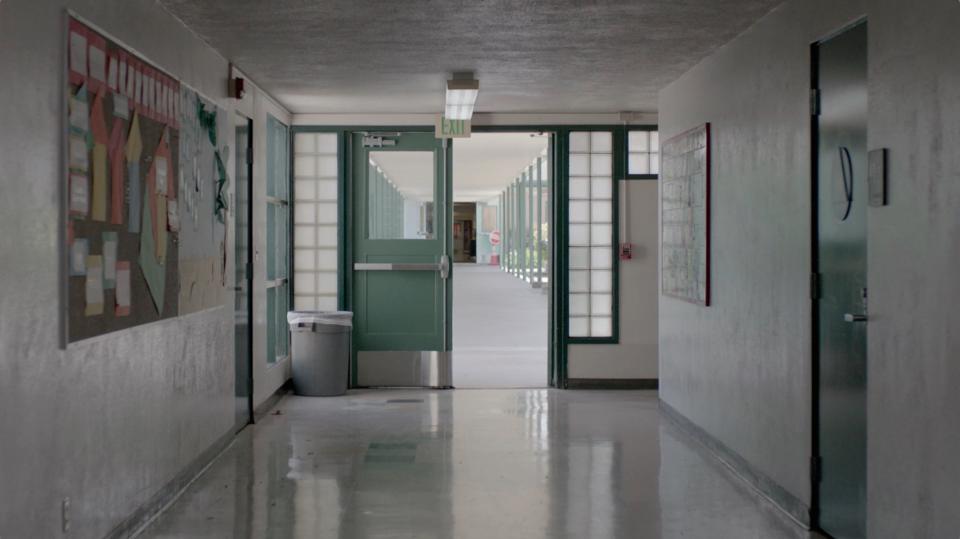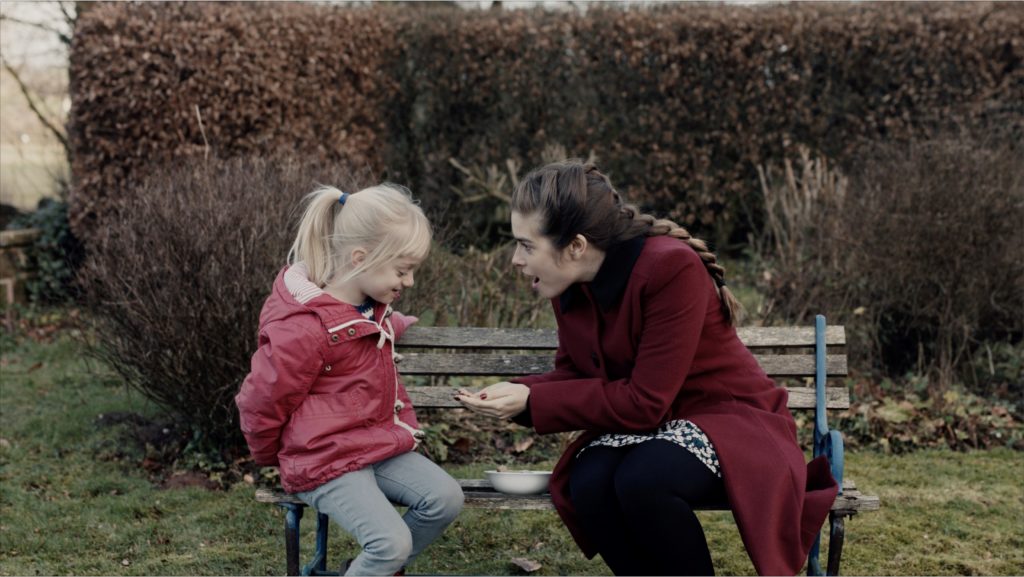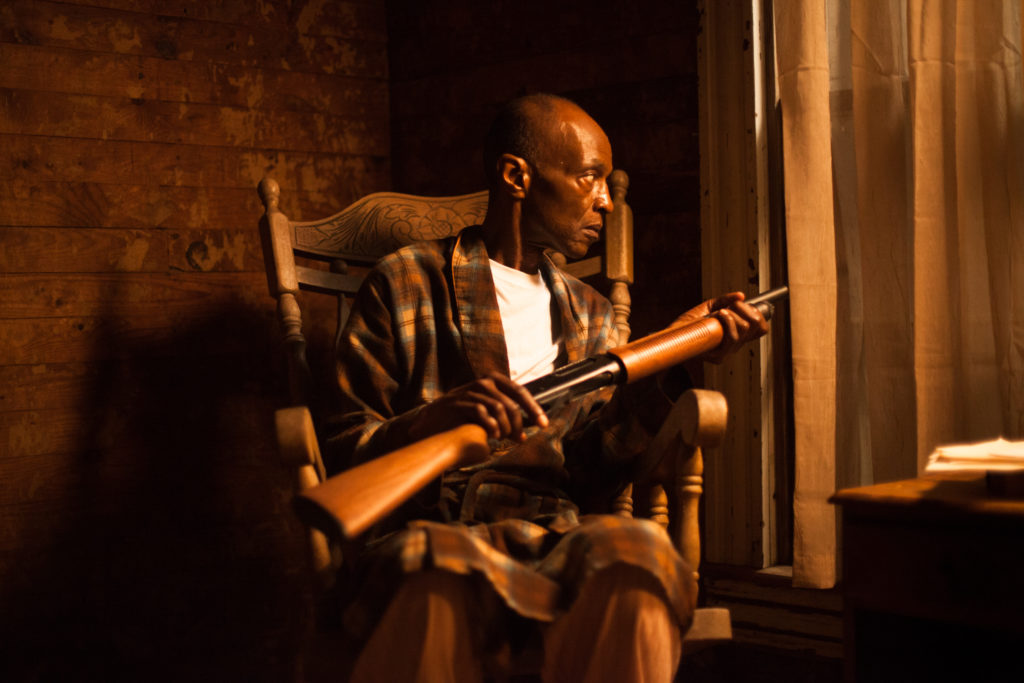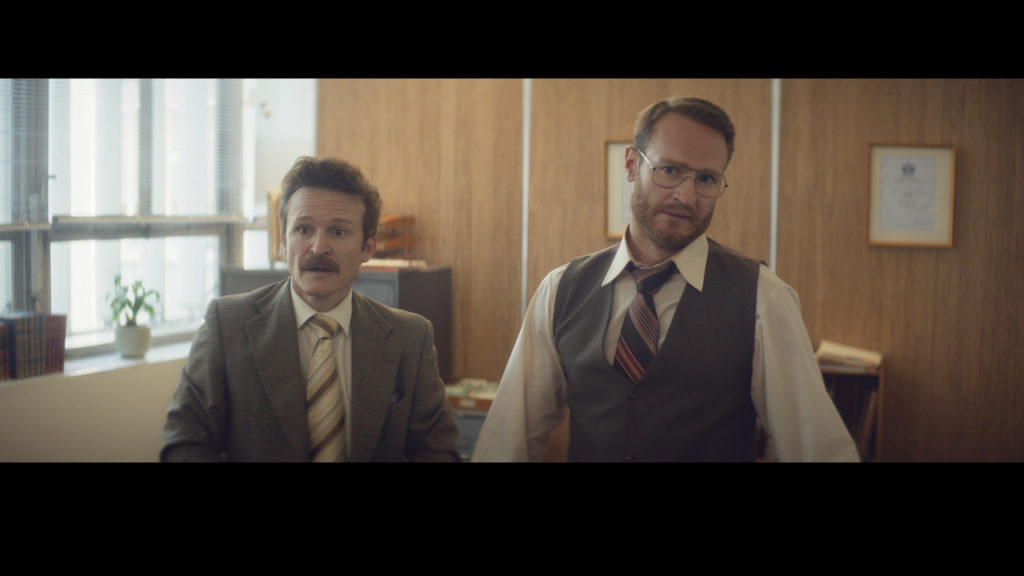An International Batch of Oscar Nominated Live Action Shorts
 Once again, ShortsHD is bringing this year’s batch of Oscar nominated Live Action and Animated Short Films to a global audience. In the United States, check your local Landmark theater to see if either Showcase is now playing. Here’s our rundown of the Live Action films, chiming in from all over the globe.
Once again, ShortsHD is bringing this year’s batch of Oscar nominated Live Action and Animated Short Films to a global audience. In the United States, check your local Landmark theater to see if either Showcase is now playing. Here’s our rundown of the Live Action films, chiming in from all over the globe.
Contributing reviewers include Erik Yates, Jeffrey Knight, Krystal Lyon, and Sharon Autenrieth. Get an edge in your Oscar pool, and more importantly, be informed about some solid, if short, cinema that is being celebrated:
DeKalb Elementary
Reed Van Dyk, USA, 20 minutes

Based on a real 9-1-1 call that was placed during a school shooting incident in Atlanta, Georgia, writer/director Reed Van Dyk’s DeKalb Elementary is a live action short film with lots of tension. While never going for anything graphic, the film holds you in its grip based on the outstanding performances of its cast, and the subtle movements of the camera that never go for quick cuts to ratchet up the tension. Tarra Riggs as Cassandra Rice, the school secretary responsible for speaking to the 9-1-1 operator at the insistence of the perpetrator, Steven Hall (Bo Mitchell), is brilliant in her subtle expression of a myriad of emotions. From fear, to empathetic, to empowered, to compassionate, we feel every emotion she expresses down to the last gasp. Bo Mitchell does a great job of demonstrating a man with mental illness whose actions do not always match what he wants to do. A powerfully effective film. – Erik Yates
The Silent Child
Chris Overton and Rachel Shenton, UK, 20 minutes

Joanne (Rachel Shenton) is a young social who’s been called in to help a family with their youngest daughter, Libby (Maisie Sly). Libby, four years old and deaf since birth, is withdrawn and uncommunicative. The mother, Sue (Rachel Fielding), assures Joanne that Libby can understand the family just fine, although her speech isn’t good. Joanne feels that perhaps by teaching Libby to sign, she can help the girl find a connection with other people Libby has been lacking. An early scene shows Libby at the family breakfast table. She sits unnoticed, while the rest of the family chatters on about their busy lives in silence. At a later breakfast, after Libby has spend time with Joanne, the girl signs that she would like some orange juice. Her brother gets it for her, and she thanks him. It is the first time we see Libby communicating with members of her own family. Sue, however, has her doubts about Libby learning to sign. She doesn’t think Libby will get on well at school if she learns sign language, because no one else at her school will know it. Sue’s probably right about her fears in that regards, as a title card at the end of the film tells us that over 78% of deaf children in the UK attend mainstream schools with little or no support of any kind. The film ends with a plea for a greater understanding of this issue and a hope that the film will help get sign language into more schools and that deaf children will get the support that they need. – Jeffery Knight
My Nephew Emmett
Kevin Wilson, Jr., USA, 20 minutes

Kevin Wilson, Jr., a student in NYU’s film school, has a history with Emmett Till. In 2009 Wilson staged several sold out performances of his play, The Emmett Till Story. Now he’s created a short film about the 1955 murder; a spare, haunting story seen through the eyes of Mose Wright, Emmett’s uncle. Wright, a small, wiry Mississippi farmer, pleaded for his 14 year old nephew’s life as Emmett was dragged from the house by two white men – allegedly for flirting with a white woman. Wright was unable to save Till’s life, but he showed almost superhuman courage by standing in open court and testifying against the murderers. My Nephew Emmett focuses on the hours just before Till was abducted, hours in which Mose is filled with dread that trouble is coming. That dread translates well to the screen: a long, quiet shot of Mose lying in his bed, listening for any sound outside the house, is almost unbearably tense. Mose Wright is played with quiet dignity by L.B. William who sadly died of cancer shortly after filming ended. – Sharon Autenrieth
The Eleven O’Clock
Dir. Derin Seale, Australia, 13 Minutes

In the short comedy, The Eleven O’Clock, director Derin Seale and writer Josh Lawson treat you to a hilarious guessing game of “who’s the real psychiatrist?” Dr. Terry Phillips and Dr. Nathan Klein both think they’re the legit “doctor” and the other is the delusional patient and with a temp secretary filling in for the morning the audience is left guessing. Similar to “Who’s On First” the dialogue is so fast and clever that it makes you smile at every turn. And just when you think you’ve figured out the difference between doctor and patient the whole dance starts again as the two “doctors” each try to treat the other. The Word Association Sequence is a comedy marvel and actors Josh Lawson and Damon Herriman are a modern day Abbott and Costello with each response building on the confusion of the last! In the end all is resolved with two simple words and a simple shift of the camera lens. The Eleven O’Clock is a comedic treasure from three friends, Seale, Lawson and Herriman, who love working together. Cheers to word play, friends and the confusing world of psychiatry, I’m rooting for The Eleven O’Clock on Oscar night! – Krystal Lyon
Watu Wote: All of Us
Katja Benrath and Tobias Rosen, Germany, 22 minutes

Religious extremists need to divide the world into “us” and “them” – need to convince friend and foe alike that we are destined for a clash of civilizations and that everyone must choose their side. Watu Wote: All of Us commemorates a moment when Kenyan Muslims and Christians refused to be set against each other; a moment when Kenyan Muslims, in particular, chose shared humanity even over self preservation. Watu Wote: All of Us offers a fictionalized retelling of a 2015 terrorist attack on a bus traveling along the border between Kenya and Somalia. When al-Shabaab fighters tried to separate Muslims from Christians for the sake of murdering the Christians (as is a common practice for al-Shabaab), the Muslims simply refused to cooperate, even helping to hide the identity of the Christians in their midst. Watu Wote especially honors Salah Farah, a Muslim school teacher whose courage became an inspiration to a nation weary of religious hostilities. German filmmaker Katja Benrath worked with a Kenyan crew to make a story we need desperately to hear again in this divisive age. – Sharon Autenrieth


